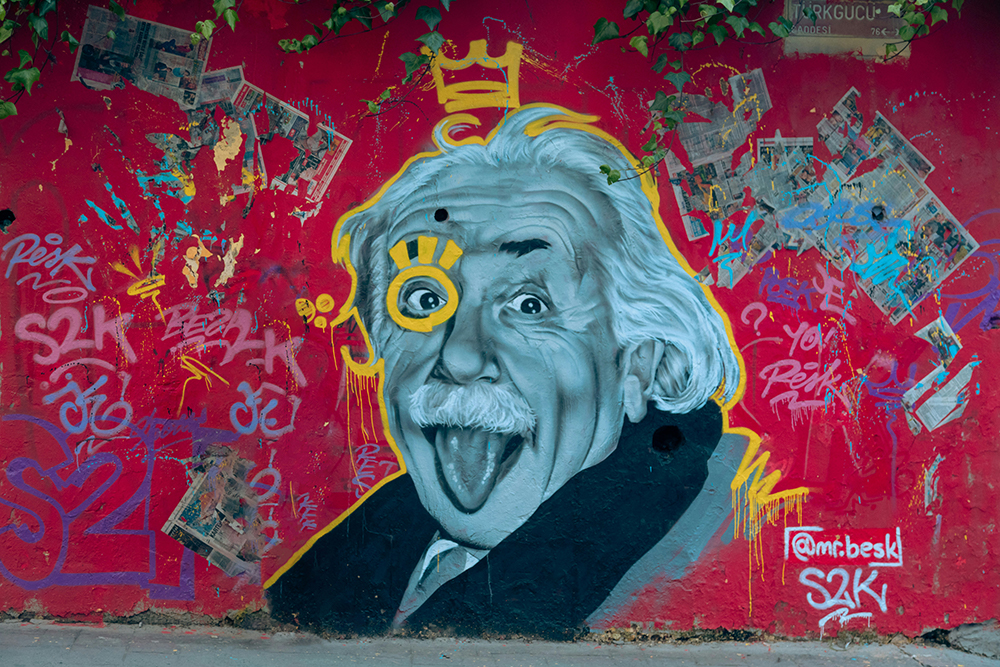The French have a saying: “The less you work, the more you produce.” I would translate that into the original French for you using the online Duolingo course skills that I’ve honed over the past three years, but it would take too much time. Besides, it’s summertime and il fait chaud and the living is supposed to be facile.
I’m old enough now to realize how fast the days of our lives fly by — or have flown by. And I’ve come to understand that in American life you have a couple of broad options: You can work hard, push your way up a career ladder or try to grow a business, and spend at least five of your seven allotted weekly days with your nose to the wheel of “achievement” until you’re 65. After that, well, you’re on your own. Hope you saved some money or can say, “Welcome to Walmart.”
The other option is that you can be a damn slacker, avoiding things that cause sweat or weariness or irritation, and spend your days just getting by in the easiest way possible. This lifestyle is called “laziness” by most Americans and is not much respected in the U.S. of A. Retirement for a slacker can also be difficult, though the “not working” part isn’t as much of a transition.
The truth is, in America for better or worse, most people buy into the “work hard” ethic — the Puritan gospel that was pounded into our wee brains from an early age: We’re put on this Earth to achieve something, dammit, not to loll around eating bonbons and drinking frosty mimosas. Remember the example of the tortoise and the hare. Slow and steady wins the race. Keep grinding, suckers.
The deification of hard work is everywhere. There are literally hundreds of quotes about its benefits: “Hard work beats talent when talent doesn’t work hard.” “The greater the effort, the greater the glory.” “Nothing will work unless you do.” And so forth and so on, ad nauseam. It’s a religion, of sorts.
And I get it. We’re just following the lead of the Christian deity, who, according to the Book of Genesis, worked six long hard days putting all this together for us, then rested. But here’s the thing we forget: It’s not like God worked six days a week for the rest of eternity. He (or whatever their pronouns may be) is probably smart enough to chill whenever he/she feels like it these days.
Millions of Americans, on the other hand, have learned to be content with 10 or 15 paid vacation days each year. That’s way less than one day out of seven, meaning most of us work harder than God did in creating the world. Jaysus. And too often, when we do go on vacation, we don’t relax. We’re too busy making plane and train connections, zipping from city to city in a vain effort to see an entire country (or continent) in two weeks.
I know we all have to pay the bills and we need to take care of our families and there’s no question that hard work does pay off in many ways. But we need to be better about knowing when to buckle down and when to call it a day. We need to remember to give ourselves some time for napping, reading, daydreaming, eating, fishing, walking, drinking, stargazing, partying, lovemaking, staring into space — whatever relaxes us, whatever allows us to renew our hearts and souls.
We Americans should take cues from other cultures. Go to France or Italy or Spain in the summer and you’ll find entire businesses shut for the season. Europeans will stretch out their summer break for a month or even six weeks. It’s all about the joie de vivre, not the joie de travail.
Work gets all the glory, but working hard and relaxing fully are both essential skills for achieving a fulfilled and happy life. But don’t just take my word for it. Here’s Albert Einstein on the subject: “A calm and modest life brings more happiness than the pursuit of success combined with constant restlessness.” And for the record, this quote, handwritten on a piece of paper, sold for $1.3 million. That’s genius. You could look it up.
